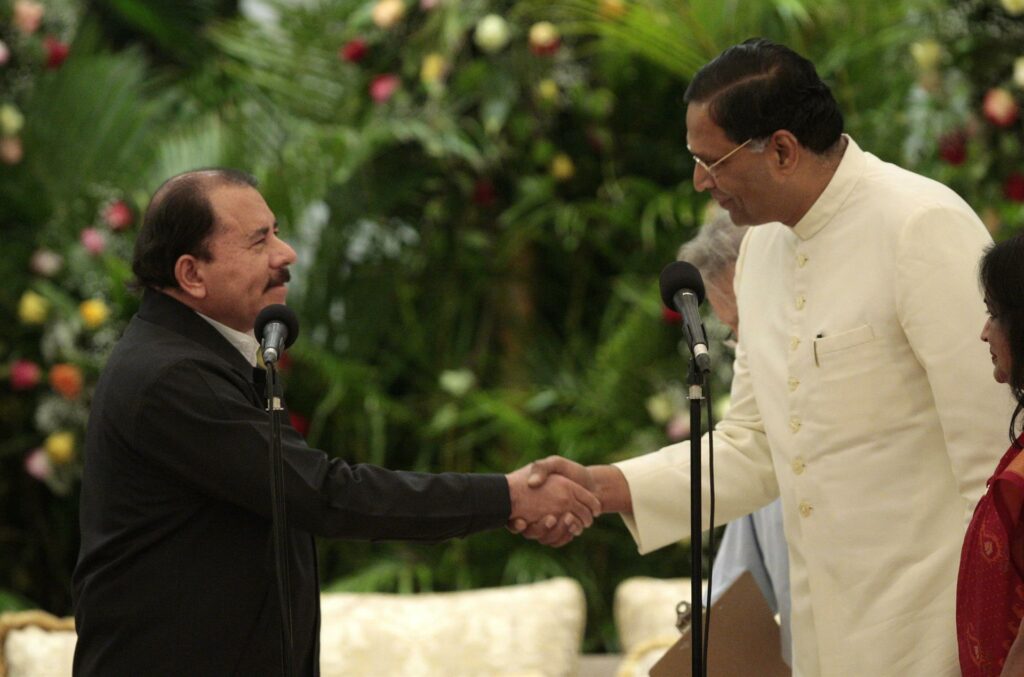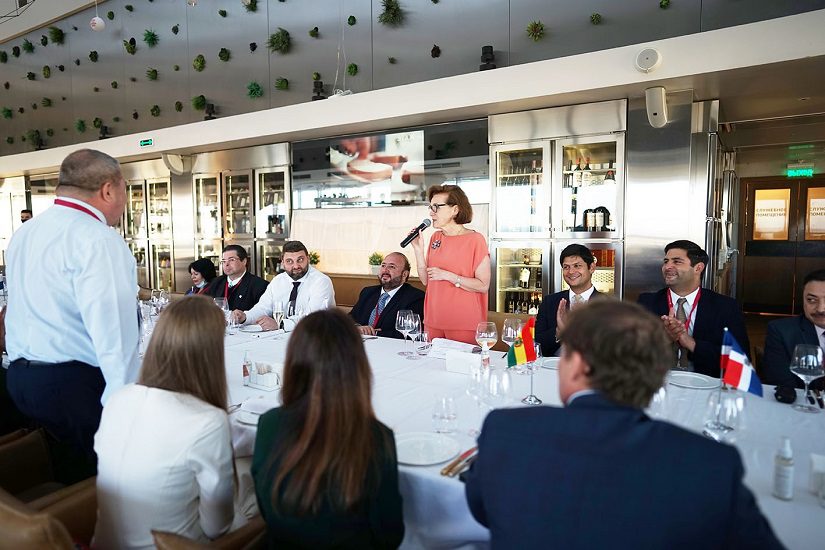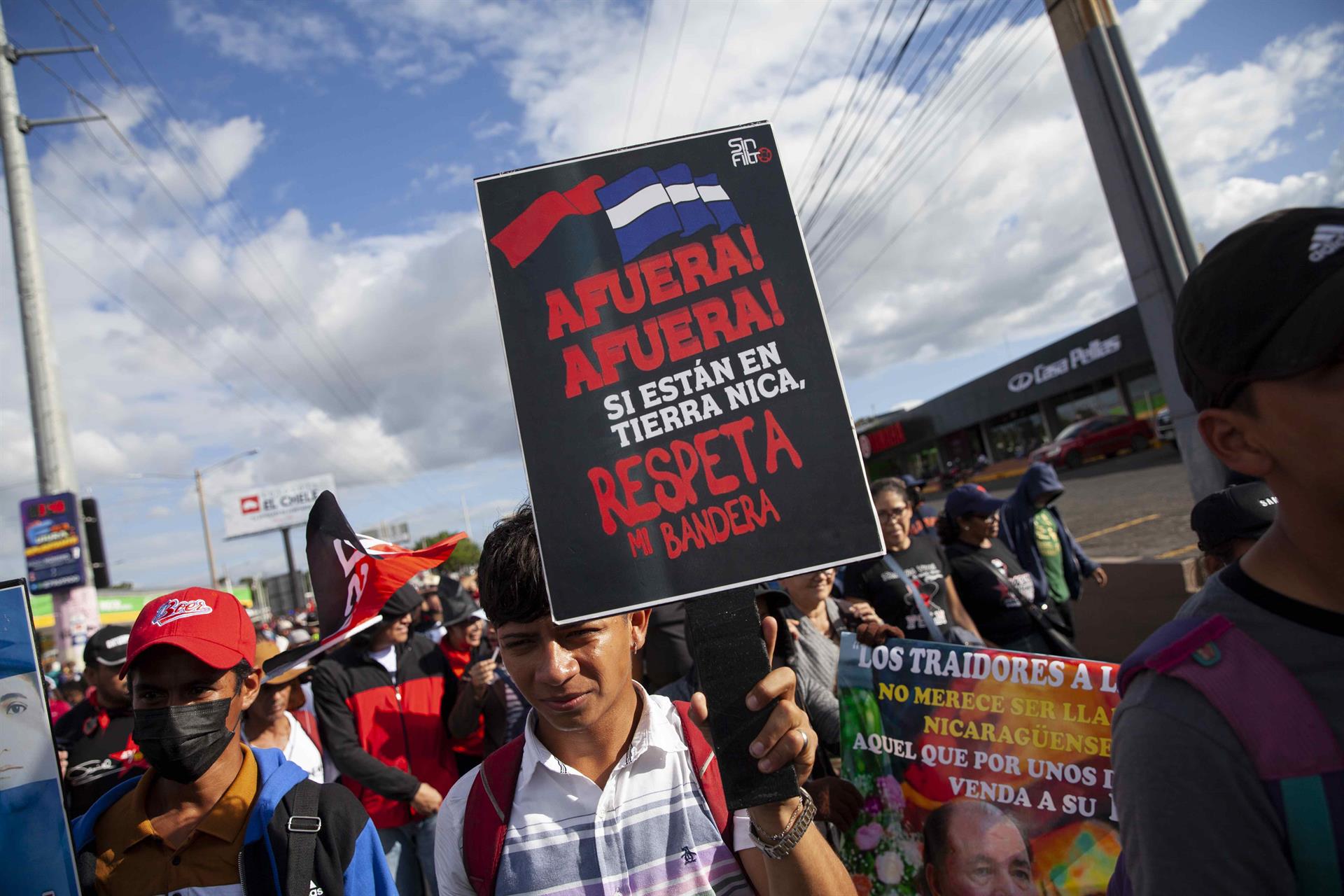At least nine honorary consuls were stripped of their recognitions last weekend by the Ortega and Murillo regime. Considering that this status is more ceremonial regarding international relations, the removal of credentials is also “deeply symbolic” and highlights the “bravado” that the regime has implemented in its foreign policy in recent years, according to the expert in international relations, Pedro Fonseca.
Although this removal of credentials has not been made official through the government newspaper La Gaceta, these are added to five others that were removed in March of this year, from Malta, the Kingdom of Norway, Romania, Denmark and Seychelles, according to diplomatic sources.
The information available is that police officers arrived at the home of each of the consuls to remove their diplomatic shields and badges. However, the names and countries of origin of those affected have not yet been officially specified. Fonseca considers that the fact that the police forces showed up unannounced at these consuls’ homes and took away their diplomatic credentials shows disrespect for the tradition and protocol that should govern diplomatic relations.
Some media reported that some of these consuls are prominent members of the Nicaraguan business community. For this reason, Fonseca believes that it is very likely that this decision is strongly based on the rejection by the Nicaraguan private sector and the international community to the crimes committed by the Ortega-Murillo regime.
For Fonseca, the dictatorship continues to demonstrate “great inefficiency in State administration and clumsiness in the development of relations with our historical international partners”.
What are the functions of an honorary consul?

According to the Nicaraguan Foreign Service Law, honorary consuls are appointed by the President of the Republic with specific powers. They shall not be considered members of the Foreign Service, “but shall be subject in their consular activities to the present Law, its regulations and the Vienna Convention on Consular Relations of 1963”, according to Article 26.
The Vienna Convention (April 1963) states that there are two types of consular officers: career and honorary. The purpose of both is to contribute to the development and friendship between nations. However, the treaty does not provide an in-depth description of the functions and status of honorary consuls.
Pedro Fonseca said that due to the lack of specific details mentioned, the definition and functions of honorary consuls may vary among States and particular circumstances. “States may establish their own regulations and bilateral agreements to determine the functions, responsibilities and legal status of honorary consuls in their international relations,” the expert explains.
Fonseca explains that honorary consuls are individuals who, by virtue of their position or contributions to the promotion of a country’s interests in another country, are appointed as consular representatives on an honorary basis and without official remuneration. Unlike regular consuls, who are government officials and perform their duties on a full-time basis, honorary consuls generally have a more ceremonial status and are usually citizens of the host country, in this case, Nicaraguan citizens.
For example, businessman Carlos Reynaldo Lacayo Lacayo, CEO of CALSA Group, was the honorary consul of the Grand Duchy of Luxembourg for more than 30 years. In an article, published in La Prensa in 2017, Lacayo said that honorary consuls are selected for being proven people, widely known for their balanced and professional attitude. “They are usually businessmen with a serious commitment to social responsibility, individuals recognized for their equanimity and enjoy the approval of their community to represent another country,” the diplomat says.
Fonseca points out that the roles of most honorary consuls are mainly symbolic and supportive, and their appointment “is usually a form of recognition of their commitment to the relationship between the two countries.”
In some countries, honorary consuls are part of a network of diplomatic missions abroad, including embassies, consulates general, consulates or other diplomatic representations. In theory, an honorary consul should look after the rights of his compatriots within his territory of responsibility. Thus, they can provide guidance and assistance to their fellow citizens in emergency or distress situations and help them contact local authorities or embassies. Generally, honorary consuls do not issue passports or handle visas or residence permits.
Honorary consuls can promote relations between the country they represent and the country in which they serve, in business, economic and cultural matters. For example, an honorary consul can help companies from his or her country to obtain information on how local companies operate or to find partners.
Nicaraguan Honorary Consuls

In a meeting with honorary consuls of Nicaragua in Asian countries in 2012, former Foreign Minister Samuel Santos said that the consuls would develop an agenda to publicize Nicaragua’s strategy to attract investment, key sectors of the economy and strategic projects, in order to support the government in the search for investment.
“The work you do is fundamental for Nicaragua’s foreign policy, especially in the case where we do not have a resident ambassador or you are far away from our embassies,” said Santos.
Santos said that the honorary consuls “represent the link that is needed to promote Nicaragua in their countries as a destination for productive investments, to venture our products, but above all to support Nicaraguans living in their countries and disseminate Nicaraguan culture”.
Pedro Fonseca, expert in international relations, lists a series of functions and responsibilities that an honorary consul may have:
- Promotion of interests: Honorary consuls may contribute to the promotion of their country’s economic, cultural and political interests in the host country.
- Assistance to citizens and businesses: although to a lesser extent than regular consuls, honorary consuls can provide assistance to their country’s citizens and businesses abroad, such as offering basic information, facilitating contact with local authorities and providing guidance in emergency situations.
- Events and public relations: Honorary consuls often participate in cultural, social and diplomatic events that promote the relationship between their country and the host country.
- Trade and investment promotion: can help facilitate trade and investment by encouraging business contacts and promoting business opportunities.
- Collaboration with local authorities: Honorary consuls may collaborate with local authorities on specific issues, such as tourism promotion, educational cooperation or disseminating information about the country they represent.





